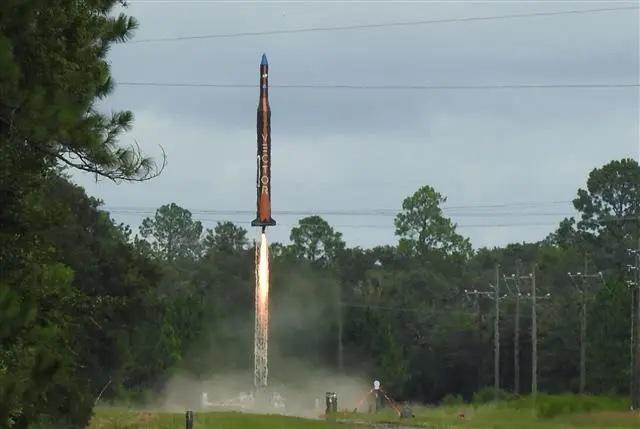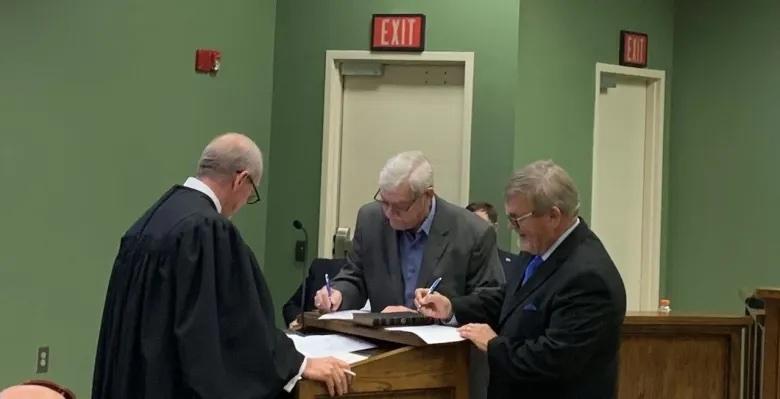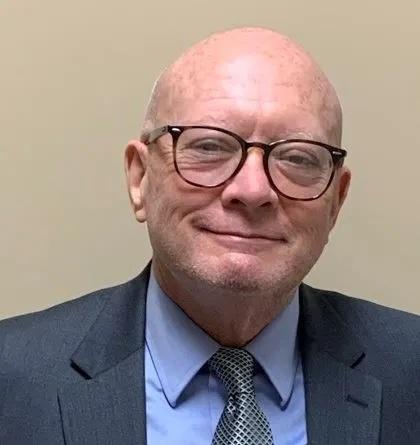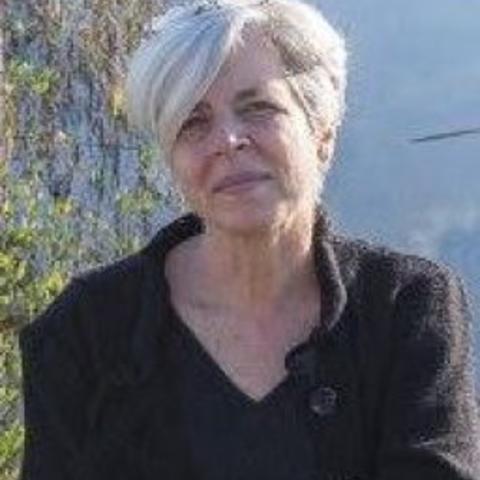
Section Branding
Header Content
Spaceport project in limbo but spending continues
Primary Content

Mary Landers, The Current
Camden County’s proposed spaceport project was grounded before it ever saw a commercial rocket lift off, with voters rejecting the idea in a March 2022 referendum. But while the project has consumed $12 million in tax dollars, the money keeps flowing, mainly for attorneys to represent the county in four spaceport-related lawsuits. Now a new commissioner is leading the charge to cut off spaceport spending.
Jim Goodman, a retired hospital administrator who last month finished his term on St. Marys City Council, was sworn in as a county commissioner Tuesday. He was instrumental in making the referendum a reality and ran for commission on an anti-spaceport platform. Less than an hour after he was sworn in he started to make good on his campaign promises.
“I think I know enough about it to know that it is a spaceport to nowhere and we’re spending money on something that will absolutely bankrupt us and produce no jobs,” he said. “We’ve spent $12 million, we paid certain individuals millions of dollars. I think it needs to end.”
Goodman explained that the county could save $200,000 immediately by releasing public information that the environmental group One Hundred Miles sued the county to obtain.
The county is involved in that litigation plus three other spaceport-related lawsuits, county attorney John Myers told the panel. First and foremost is the pending Georgia Supreme Court decision on the validity of the referendum in Camden County v. Judge Robert Sweatt. Myers expects a decision by February, he said. Goodman is in the unusual position of now being both an intervenor on behalf of the respondent, Judge Sweatt, and now as an official member of the board of commissioners, an appellant in the case.

The county has also sued Union Carbide Corporation for breach of contract. That’s in U.S. District Court in Brunswick as Camden County v. Union Carbide. UCC owns the land on which the spaceport was planned to be built, but the company holds that the voters voided the option-to-buy contract with a nearly 70% anti-spaceport vote in the referendum and refuses to sell it to the county.
Then there’s litigation pending in federal district court in Washington, D.C., in which the Federal Aviation Administration is defending the Dec. 2021 issuance of a launch site operators license to Camden. That’s National Parks Conservation Association et. al. v. Federal Aviation Administration et. al. Camden intervened on the FAA’s side.
Finally, the longest running spaceport litigation is that in Camden County Superior Court in which the conservation group One Hundred Miles in 2019 sued the county and its contractors to force the release of public records about the proposed spaceport. That’s One Hundred Miles v. Camden County, NelsonCFO, Inc., and the Aerospace Corporation.
“That relates to the real estate exemption under the Georgia Open Records Act and certain email transmissions that they’re trying to get their hands on,” Myers told the commission.
Myers also told the commission all the actions are waiting on the Supreme Court decision. But only the proceedings of National Parks Conservation Association et. al. v. Federal Aviation Administration et. al. mention a stay pending a decision from the Georgia Supreme Court case.
Goodman spoke up early in Tuesday’s meeting.
“I make a motion to end all spaceport-related spending, including lawyers, and release all records related to the spaceport to the public,” Goodman said at the Camden County Commission meeting Tuesday. “The public’s paying for it. It deserves to see them. That’s the motion.”
The motion failed by a 3-2 vote, with Commissioner Trevor Readdick voting with Goodman.
Camden County has spent about $12 million and seven years to develop its Spaceport Camden to launch small commercial rockets up to 12 times a year. The project achieved its initial licensing from the FAA over objections from homeowners on Little Cumberland Island over whom rockets would launch, and from supporters of nearby Cumberland Island National Seashore who feared for the safety of visitors and integrity of the wilderness. Proponents saw it as an economic engine for the largely rural county.

Two of the project’s biggest supporters are no longer running the county. Former Commission Chairman Gary Blount lost his district seat to Goodman. Former County Administrator and Spaceport Camden Project Leader Steve Howard took a job in November in Citrus County, Florida.
After his first attempt failed, Goodman revised his motion to include only the release of spaceport information.
“The public has lost trust in the Board of Commissioners because of the secrecy around all of the spaceport contracts and lawyers dealings,” he said. “This is our chance to amend for that and to save the taxpayers more legal fees in defending the county’s violation of the Georgia Open Records Act. I make a motion that we simply release all the spaceport records to the public.”
That motion failed by the same 3-2 vote. But another new commissioner, Martin Turner, seemed open to releasing more information. Martin, who beat vocal spaceport opponent Steve Weinkle to win his seat, indicated he first wanted to be thoroughly backgrounded on the information himself and on the legal implications of releasing it.
“I know the $12 million that’s involved there. Been seven years you spent it, but I would like to see records,” Turner said. “And I would like to have some information in front of me.”
On Wednesday, Goodman said his spaceport motions will return.
“At every meeting from now on I’m going to put it on the agenda to stop spaceport spending and stop the voluntary lawsuits,” he told The Current in a phone interview.
This story comes to GPB through a reporting partnership with The Current.

